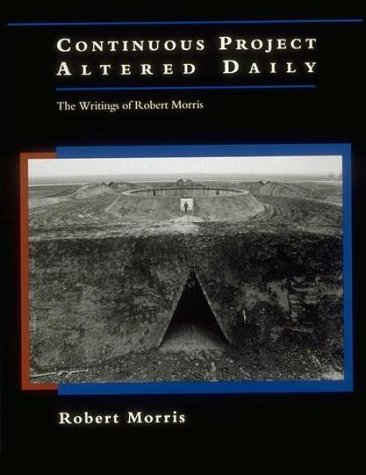Inhaltsangabe
Robert Morris is best known for his significant contributions to minimalist sculpture and antiform art, as well as for a number of widely influential theoretical writings on art. Illustrated throughout, this collection of his seminal essays from the 1960s to the 1980s addresses wide-ranging intellectual and philosophical problems of sculpture, raising issues of materiality, size and shape, anti-illusionism, and perceptual conditions.
The essays:
- Notes on Sculpture (Parts 1-4).
- Anti Form.
- Some Notes on the Phenomenology of Making: The Search for the Motivated.
- The Art of Existence.
- Three Extra-Visual Artists: Works in Process.
- Some Splashes in the Ebb Tide.
- Aligned with Nazca.
- The Present Terms of Space.
- Notes on Art as/and Land Reclamation.
- American Quartet.
- Three Folds in the Fabric and Four Autobiographical Asides as Allegories (or Interruptions).
- Robert Morris Replies to Roger Denson (Or Is That a Mouse in My Paragon?)
An OCTOBER book
Reseña del editor
Robert Morris is best known for his contributions to minimalist sculpture and antiform art, as well as for a number of influential theoretical writings on art. This collection of his essays from the 1960s to the 1980s addresses wide-ranging intellectual and philosophical problems of sculpture, raising issues of materiality, size and shape, anti-illusionism and perceptual conditions. Included are the influential "Notes on Sculpture", which in four parts articulates the shifting terrains of sculpture during the 1960s, tracing its movement from the gestalt-driven unitary forms of minimalism, through permutable pieces, to the formally dispersed process-oriented antiform art that appeared later in the decade. Morris's landmark essay on "Anti Form", which marked a departure from art as object is also featured. In the later essays, Morris looks at modern art's development in America, based on a framework of strategies produced by Duchamp, Pollock, and other key figures. And in a refiguration of an interview with Roger Denson, Morris acts out a subtle mockery of himself and his art, collapsing the high seriousness of the intended format into a playful scheme.
„Über diesen Titel“ kann sich auf eine andere Ausgabe dieses Titels beziehen.
